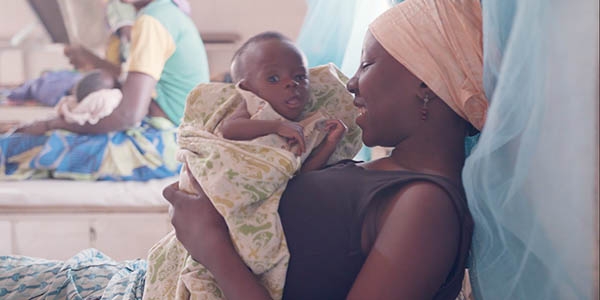Health and Nutrition in Emergencies
In the aftermath of a disaster or conflict Save the Children delivers health and nutrition interventions that address illness and death.
Every day, approximately 800 women die from preventable causes related to pregnancy or childbirth. Ninety-four percent of these deaths occur in low and lower middle-income countries where women and girls are unable to access adequate health services. Improved care around time of birth and after birth can significantly save the lives of women and newborns. Getting pregnant too young or too soon is a key risk factor for complications in pregnancy and childbirth.
Promoting the use of contraception is essential to reducing maternal and newborn deaths, and improving the livelihoods of women and their families by allowing women to space births and girls to avoid pregnancy and stay in school. Overall, an estimated 218 million women and girls in low- and middle-income countries (LMICs) have an unmet need for family planning, resulting in about 111 million unintended pregnancies every year.
Increasing access to modern contraception and quality maternal care, creating supportive health care systems and policies, and building supportive community environments for safer pregnancies could prevent 1 in 3 maternal deaths and 1 in 5 child deaths. Our maternal and reproductive health (MRH) programs aim to reduce these deaths and improve the health of women, adolescents and newborns to contribute to long-term benefits for their families and communities.

Access to family planning for the healthy timing and spacing of pregnancies
To reduce the risk of adverse maternal and newborn health outcomes, we help women and their partners delay, space, or limit pregnancies by improving the quality and accessibility of family planning (FP) services. We also expand availability of different contraceptive methods and increase community awareness of, demand for, and use of modern FP methods. We strengthen postpartum FP services and integrate FP into other health services (such as immunization programs) to increase opportunities for women to access care, including nomadic populations. And we work with governments and local partners to strengthen their service delivery platforms at both facility and community levels to help women and their partners.

Respectful and high-quality pregnancy care
Quality antenatal care (ANC) and postnatal care (PNC) services provide better health outcomes for both the mother and infant through preventive care and the identification and treatment of complications. However, data shows that most women in low- and middle-income countries (LMICs) do not have enough contacts with health providers, or when they do, the service provided is not of quality. Our integrated programs improve maternal care to ensure that pregnant women access and receive respectful and quality care during pregnancy, childbirth, and after delivery. We work with policy makers and program managers to ensure maternal health policies and guidelines are evidence-based and meet global standards. We also build the capacity of health providers and work in communities to build support among families to ensure women seek timely care during pregnancy, labor, and after childbirth to avoid preventable deaths.

Prevention of preterm births
Prematurity is the leading cause of newborn deaths, yet many preterm births can be prevented or managed with feasible, cost-effective solutions. Health interventions throughout a woman’s life, from preconception through labor and in between pregnancies, can help prevent early births. Timely administration of antenatal corticosteroids to pregnant women in imminent preterm labor significantly reduces death among premature babies. Our integrated programs also work to ensure women in preterm labor receive this life-saving medication to improve survival for their preterm babies.

Support to young and first-time parents
Approximately 21 million adolescent girls (ages 15–19) become pregnant every year, affecting their education and long-term economic opportunities. Our MRH and adolescent sexual and reproductive health (ASRH) programs focus on supporting married and parenting adolescents to ensure that they and their children receive adequate health and social support during their pregnancy, childbirth, and after delivery to enhance their quality of life.

Engagement of men and communities
Partners and families play an important role in MRH as they can provide a supportive environment for women and girls seeking care. We use a gender-transformative approach to change attitudes and gender norms among men and communities to empower women and girls to use MRH services. This encourages the adoption of healthy behaviors and norms, and generates demand for family planning and maternal health services, particularly in underserved populations and among adolescents.

Reproductive health in humanitarian settings
Reproductive health is a necessary component of humanitarian health responses. Thirty-five million women of reproductive age are in need of humanitarian assistance. Their needs do not disappear in crisis. Pregnant women still need access to care, and others may want to postpone pregnancy. We train and mentor frontline health workers, provide commodities and supplies, strengthen supply chains and support communities to work together to increase awareness and use of reproductive health services in humanitarian and fragile settings.
Thank you for signing up! Now, you’ll be among the first to know how Save the Children is responding to the most urgent needs of children, every day and in times of crisis—and how your support can make a difference. You may opt-out at any time by clicking "unsubscribe" at the bottom of any email.
By providing my mobile phone number, I agree to receive recurring text messages from Save the Children (48188) and phone calls with opportunities to donate and ways to engage in our mission to support children around the world. Text STOP to opt-out, HELP for info. Message & data rates may apply. View our Privacy Policy at savethechildren.org/privacy.